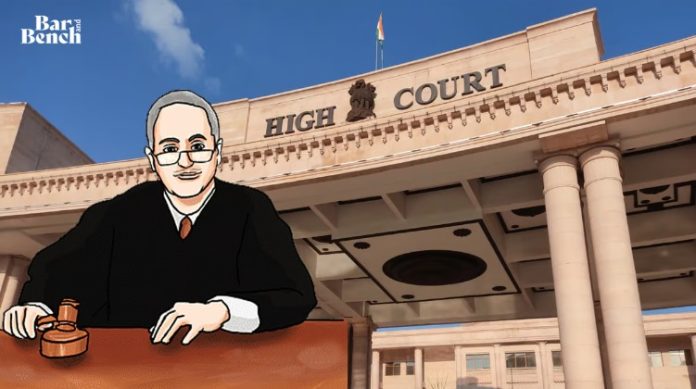The Allahabad High Court has taken a significant step by summoning a senior judicial officer for alleged religious discrimination against Muslim lawyers during a trial at the Lucknow Bench. The Court has termed the judge’s remarks and conduct as a case of judicial misconduct, reports Bar & Bench.
This development arose during the trial of a criminal case involving two Muslim scholars, Mohammad Umar Gautam and Mufti Qazi Jahangir Alam Qasmi, who are accused of forced religious conversion as per the Uttar Pradesh Anti-Terrorist Squad.
Additional District & Sessions Judge Vivekanand Sharan Tripathi, serving as the Special Judge NIA/ATS in Lucknow, had previously denied a request from Muslim lawyers for a brief adjournment to attend Friday prayers. Subsequently, he appointed amici curiae as additional counsel to assist the Court when the Muslim lawyers needed to attend prayers.
In response, Justice Shamim Ahmed intervened last month and stayed the trial court’s orders after one of the accused approached the High Court.
Following this intervention, the trial court permitted the Muslim lawyers to represent the accused but did not address the application for electronic evidence.
In an order dated April 3, Justice Ahmed strongly criticized the trial court’s conduct, particularly its observations about the absence of counsel belonging to a specific religious community and the subsequent appointment of amici.
The High Court noted that such actions constituted clear discrimination based on religion, violating the fundamental right enshrined in Article 15 of the Constitution of India.
The Court emphasized the importance of judicial integrity, stating that judges must decide cases solely on factual and legal merits, devoid of any extraneous considerations.
Consequently, the High Court has restrained the trial court from further proceedings against the petitioner, citing concerns over judicial misconduct.
Judge Tripathi appeared before the single-judge on Monday and offered an unconditional apology, acknowledging misconceptions in passing the orders and expressing vigilance for future proceedings.
The Court granted Judge Tripathi two days to file a personal affidavit, scheduling a hearing for April 18 to address the matter further.
Advocates representing the petitioner included Mohemmed Amir Naqvi, Abhishek Singh, Ajeet Pratap Singh, and Zia Ul Qayuim, while Advocate Gaurav Mehrotra represented Judge Vivekanand Sharan Tripathi, and Advocate Shiv Nath Tilhari represented the State.
This development underscores the judiciary’s commitment to upholding fairness and impartiality, essential for maintaining public trust and confidence in the judicial system.




